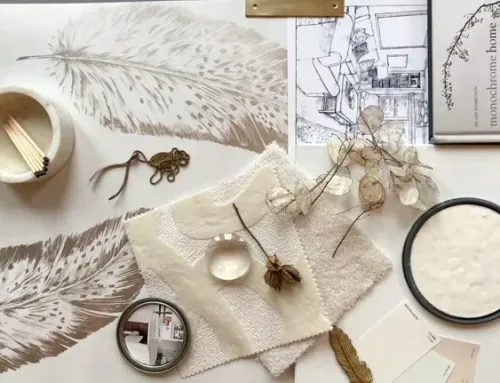By Sally Jones
Aug 29, 2023

Inheriting property can be a mixed bag. On the one hand, you’re dealing with losing a loved one. And while you’re likely grateful for the inheritance, you also have to deal with many complex legal, financial, and tax matters.
And then there’s the big cleanout. Sifting through decades of a person’s belongings can be equal parts dreary and stressful. This stress is only compounded if the inherited property is a hoarder house.
Sometimes, even an ordinary hoarder home in a coveted neighborhood has been known to spark a bidding war. But on the flip side, rehabbing an extensively damaged house could cost more than you can sell the home for. So, how do you know what’s best for you to do?
From cleaning it out to fixing it to determining its value, our experts weigh in on what to do when you’ve inherited a hoard.
Assess the mess
Not all hoarding is the same. Some hoarders resemble collectors whose acquisitions have gotten out of hand—whether it’s designer fashions with the tags still on, baseball memorabilia, or movie toy collections.
If this is your situation, it could pay (big bucks) to call in an auction professional to assess the value of the collectibles.
Another common type of hoarding involves old files, bills, paperwork, and magazines. If this sounds like your house, and if the “collection” isn’t blocking doors or preventing you from easily walking through the home, the solution might be as easy as placing a call to a junk collector or a mobile shredding unit.
However, if some of those books could be valuable first editions, call the auctioneer first.
Clean it out
When it comes to cleaning out the house, most experts with experience in hoarder homes suggest leaving it to professionals.
“Dealing with inherited hoarder homes can present unique challenges,” says Nick Giulioni, managing partner of Off Leash Investments, who has extensive experience buying, rehabbing, and managing distressed properties. “Hiring a professional clean-out service is often crucial. It ensures a thorough cleanup and lightens the emotional burden for inheritors.”
Just note that hiring the pros can set you back “thousands of dollars,” adds Giulioni.
Do what the pros do—or hire them
The cost of an expert cleanout might have you considering doing it yourself, but tackling the job alone may be challenging depending on the conditions of the home.
“We highly recommend calling in a professional company if the situation is severe,” says Kevin Geick, manager at Bio Recovery, a nationwide hoarding cleanup company for over 20 years. “Reasons for this include proper disposal and recycling that conforms with local regulations and environmental guidelines as well as safety concerns regarding potential hazards.”
Signs that you need a professional cleanout include the following:
- The hoard includes garbage or food containers.
- There’s no easy pathway through the house.
- There are animals and animal waste on the premises.
- The house has structural defects.
Professional cleanout services have the expertise and the equipment—including biohazard gear—to clean out such a home safely, advises Geick.
Determine market value
While the general advice for home sellers is to wait for your buyer’s appraisal, if you’ve inherited a hoarder home, you’ll want to get an approximate valuation early. This way, you’ll know if you’ll recoup the costs of cleaning it out and fixing it up.
“Engage a licensed appraiser to objectively assess the home’s current and potential value,” advises Giulioni.
A home inspection will identify all structural issues.
Rehab the house
Most hoarder houses suffer from deferred maintenance. When a home is filled to the rafters with clutter, it can prevent the homeowner from seeing and fixing problems, and it might block vital mechanicals, like the HVAC system.
So, a hoarder house can have problems that range from minor repairs to major structural issues. If your home’s issues are minor, take care of them before you put it on the market. This way, you’ll get the best possible offer on the house.
But a hoarder home with extensive damage (think unaddressed water damage and associated mold conditions) requires remediation and renovation, and that could cost thousands of dollars.
Know when to sell it as is
Depending on what your agent suggests is a reasonable sales price, you might not recoup the cost of significant repairs to a home in dire shape. If this is the case, you could be tempted to put it on the market as is. But this approach is more challenging than it sounds.
“This significantly reduces the pool of potential buyers,” says Geick. “The property might sit on the market for an extended period, leading to carrying costs and reduced profit. In addition, potential buyers may see it as a risky investment and offer lower prices.”
So Giulioni advises that you accept offers only from buyers who have physically inspected the property.
“This reduces surprises and price renegotiations during the inspection window, as the buyer has a more realistic expectation of the property’s condition,” he adds.
Know when to sell it to an investor
Rather than attempt to sell the home as is to a general market, Geick suggests seeking out buyers looking for distressed properties.
“Some real estate investors specialize in purchasing properties as is,” says Geick. “They may be more willing to buy the property quickly, even if it requires significant cleanup and repairs.”
The drawback is you won’t get as much money for it as you would for a home that is in marketable condition.
“Flippers make their money based on the arbitrage between the rehab cost and the change in value,” explains Giulioni.
But on the plus side, you won’t have to deal with the expense and headache of rehabbing the home. And you’ll get your money right away, in cash.
Source- https://www.realtor.com/advice/sell/inherited-a-hoarder-house-heres-how-to-deal-with-it-and-possibly-make-a-profit/






